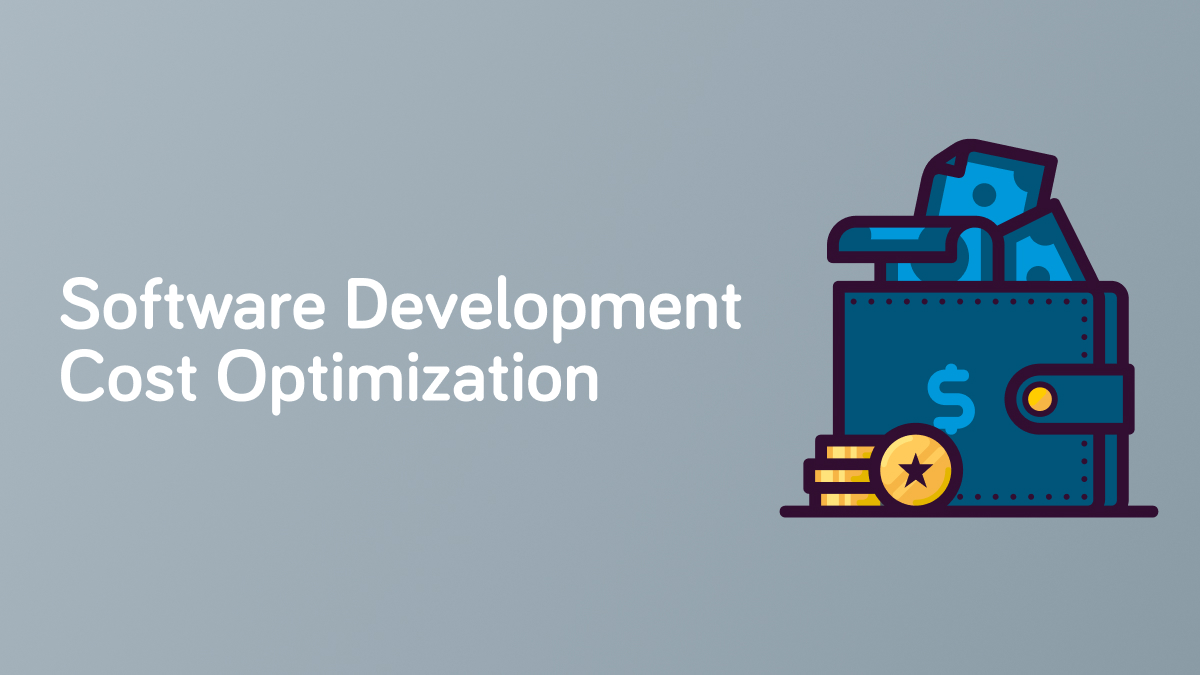In the fast-paced world of sales, mastering the right methodologies is paramount for success. Sales methodology not only guides sales teams but also ensures a customer- centric approach, ultimately leading to higher conversions and customer satisfaction. In this article, we’ll explore some popular sales methodologies. Not only this, we’ll also provide expert advice to assist you in implementing the right one for your business.
What is the sales methodology?
The sales methodology is a structured approach that guides sales professionals in acquiring new customers and closing deals efficiently. It involves understanding customer needs, building relationships, and strategically presenting products or services to meet those needs.
A unique example of a sales methodology is the SPIN Selling technique developed by Neil Rackham. In SPIN Selling, salespeople focus on asking Situation, Problem, Implication, and Need-Payoff questions. This uncovers the customer’s specific needs and pain points. By addressing these needs directly, salespeople can demonstrate how their product or service provides value and solves the customer’s problems. This leads to higher chances of closing the sale.
What is the significance of utilizing a sales methodology?
By providing a systematic way to approach the sales process, sales methodologies help sales professionals understand customer needs, identify opportunities, and tailor their approach accordingly. They outline specific steps to follow, from prospecting and qualifying
leads to closing deals and nurturing customer relationships. Moreover, sales methodologies often incorporate best practices, techniques, and strategies proven to increase sales effectiveness. Ultimately, the adoption of a sales methodology enables organizations to standardize their sales processes, improve consistency across sales teams, and ultimately drive better results.
Key Steps for implementing a sales methodology
Implementing a sales methodology involves several key steps, which are listed below:
Understanding the Customer: Before diving into any sales methodology, it’s crucial to understand the needs, pain points, and preferences of your target audience. This knowledge forms the foundation for effective sales strategies.
Training and Development: Before diving into any sales methodology, it’s crucial to understand the needs, pain points, and preferences of your target audience. This knowledge forms the foundation for effective sales strategies.
Integration with CRM: Integrate your chosen sales methodology with your Customer Relationship Management (CRM) system. This enables seamless tracking, analysis, and optimization of sales processes.
Regular Evaluation and Adaptation: Sales methodologies should be dynamic, evolving to meet changing market trends and customer demands. Regularly evaluate performance metrics and adapt strategies accordingly.
10 BEST SALES METHODOLOGIES
1. Consultative Selling:
Consultative Selling is a dynamic approach that prioritizes building strong relationships with customers by actively listening to their needs. This sales methodology also provides tailored solutions through effective problem-solving techniques. Sales professionals engage in deep conversations with clients to gain a comprehensive understanding of their challenges, goals, and pain points. They do this by asking open-ended questions and actively listening to the responses. This allows them to uncover underlying issues that the customer may not have initially articulated. Once the salesperson has a clear understanding of the customer’s needs, they leverage their expertise and knowledge. To propose customized solutions that address those specific pain points. This involves presenting relevant products or services in a way that directly aligns with the customer’s objectives and offers tangible value. Moreover, Consultative Selling emphasizes collaboration and partnership rather than simply making a transaction. Sales professionals act as trusted advisors, guiding the customer through the decision-making process and providing ongoing support even after the sale is made. By focusing on building relationships and understanding customer needs, Consultative Selling fosters long-term loyalty and repeat business. It establishes a foundation of trust between the salesperson and the customer. By doing so, creates a mutually beneficial partnership where both parties are invested in each other’s success.
2. SPIN Selling:
SPIN Selling is a methodical approach designed to delve deeply into the customer’s needs by following a structured framework: Situation, Problem, Implication, and Need-payoff. In the initial stage of SPIN Selling, sales professionals focus on understanding the customer’s current situation. They gather information about the customer’s existing setup, challenges, and objectives by asking probing questions and actively listening to the responses. Once the situation is comprehensively understood, the salesperson moves on to identifying the customer’s problems. They delve into the specific issues that the customer is facing, exploring the root causes and implications of these challenges.
The third stage of SPIN Selling involves uncovering the implications of the customer’s problems. Sales professionals delve deeper into how these challenges impact the customer’s business or personal goals. By highlighting the consequences of inaction or inadequate solutions, they emphasize the urgency and importance of addressing the identified issues. Finally, SPIN Selling concludes with the exploration of the customer’s need-payoff. In this phase, sales professionals present the benefits and value proposition of their product or service as a solution to the customer’s problems. They articulate how their offering can
address the customer’s needs, alleviate pain points, and deliver tangible benefits or outcomes.
Throughout the SPIN Selling process, active engagement and effective questioning techniques are key. Sales professionals guide the conversation, steering it towards uncovering the customer’s needs and presenting tailored solutions that align with their objectives. By following the structured SPIN framework, sales professionals can systematically uncover customer needs, address their concerns, and ultimately, close deals more effectively.
3. Solution Selling:
Solution Selling is a customer-focused sales methodology that prioritizes understanding the unique challenges and objectives of each customer. then providing tailored solutions to address their specific needs. In Solution Selling, sales professionals engage in thorough discovery conversations with clients to uncover their pain points, goals, and priorities. Through active listening and strategic questioning, they gain a deep understanding of the customer’s business environment, industry trends, and competitive landscape.
Once the customer’s challenges and objectives are identified, sales professionals leverage their expertise to propose customized solutions that directly address these specific needs. They tailor their recommendations to align with the customer’s goals, preferences, and constraints, ensuring that the proposed solution is both relevant and impactful.
Moreover, Solution Selling emphasizes the value proposition of the offered solution, highlighting how it can solve the customer’s problems, streamline processes, increase efficiency, or drive growth. Sales professionals articulate the tangible benefits and ROI (Return on Investment) of the proposed solution, demonstrating its value and potential impact on the customer’s business.
Throughout the sales process, sales professionals actively collaborate with the customer, engaging in consultative discussions and seeking feedback to refine the proposed solution further. They prioritize transparency and open communication, building trust and credibility with the customer as a trusted advisor and strategic partner.
By focusing on providing tailored solutions that address specific customer challenges and objectives, Solution Selling fosters long-term relationships and customer loyalty. It positions sales professionals as valuable partners who are committed to delivering results and driving success for their clients.
4. Challenger Sale:
Challenges customers’ preconceptions and offers insights that reshape their thinking, ultimately leading to more impactful sales.
The Challenger Sale methodology is a strategic approach that aims to challenge customers’ existing beliefs and perceptions by offering unique insights that reshape their thinking, leading to more impactful sales.
Sales professionals employing the Challenger Sale methodology take an assertive stance by challenging customers’ preconceived notions and assumptions about their problems and potential solutions.
They do so by presenting thought-provoking insights derived from their deep understanding of the customer’s industry, business challenges, and market trends.
Through active engagement and persuasive communication, sales professionals introduce new perspectives and ideas that compel customers to reconsider their current approach. They leverage their expertise to highlight overlooked opportunities, potential risks, and competitive advantages that the customer may not have previously considered. Moreover, the Challenger Sale methodology encourages sales professionals to foster constructive tension during sales interactions.
By respectfully challenging customers’ viewpoints and engaging in robust discussions, they create a sense of urgency and drive the customer towards action. Furthermore, sales professionals employing the Challenger Sale methodology focus on delivering value beyond the product or service itself.
They position themselves as trusted advisors who provide valuable insights and strategic guidance, thereby establishing credibility and building long-term relationships with customers. By challenging customers’ preconceptions and offering transformative insights, the Challenger Sale methodology enables sales professionals to differentiate themselves from competitors and drive more impactful sales outcomes.
It empowers them to become catalysts for change, guiding customers towards innovative solutions that address their evolving needs and priorities. In summary, the Challenger Sale methodology is a proactive and assertive approach that empowers sales professionals to challenge customers’ thinking and drive meaningful change. By offering valuable insights and fostering constructive dialogue, they position themselves as trusted advisors and drive more impactful sales engagements.
5. Inbound Selling:
Attracts prospects through valuable content and builds trust over time, resulting in organic lead generation and conversion.
Inbound Selling is a strategic approach that focuses on attracting prospects by offering valuable content and building trust over time, ultimately leading to organic lead generation and conversion.
Sales professionals implementing Inbound Selling actively create and distribute high-quality content that addresses the needs, interests, and pain points of their target audience. This content may take various forms, such as blog posts, eBooks, whitepapers, videos, podcasts, or social media posts.
By providing valuable and relevant content, sales professionals establish themselves as knowledgeable and trustworthy sources within their industry or niche. They position themselves as thought leaders who genuinely understand their audience’s challenges and can offer meaningful solutions.
Through consistent and targeted content marketing efforts, sales professionals attract prospects who are actively seeking information or solutions related to their offerings. These prospects are drawn to the valuable content provided by the sales team, initiating the first step in the sales process.
As prospects engage with the content and interact with the sales team through various channels, trust begins to develop over time. Sales professionals nurture these relationships by providing personalized support, addressing inquiries promptly, and offering additional resources or insights as needed.
The trust built through Inbound Selling lays the foundation for meaningful connections and fosters a sense of credibility and reliability. Prospects are more likely to consider the sales team as trusted advisors and are more receptive to their recommendations and solutions. Furthermore, Inbound Selling leads to organic lead generation as satisfied prospects share the valuable content with their networks, expanding the reach and visibility of the sales team.
This word-of-mouth marketing amplifies the effectiveness of the sales efforts, attracting more qualified leads and driving higher conversion rates.
In summary, Inbound Selling is a proactive and customer-centric approach that leverages valuable content to attract prospects, build trust, and drive organic lead generation and conversion. By positioning themselves as valuable resources and trusted advisors, sales professionals can establish long-lasting relationships and drive sustainable business growth.
6. Social Selling:
Leverages social media platforms to engage with prospects, establish credibility, and drive sales conversations.
Social Selling is a strategic approach that harnesses the power of social media platforms to actively engage with prospects, establish credibility, and drive meaningful sales conversations.
Sales professionals employing Social Selling actively leverage various social media platforms such as LinkedIn, Twitter, Facebook, Instagram, and others to connect with prospects and initiate interactions. They utilize these platforms to share valuable content, engage in relevant discussions, and showcase their expertise within their industry or niche.
Through consistent and targeted social media activity, sales professionals aim to establish credibility and build trust with their audience. They share insightful content, provide helpful advice, and participate in meaningful conversations, positioning themselves as knowledgeable and trustworthy sources within their field.
Moreover, Social Selling enables sales professionals to proactively identify and engage with prospects who are active on social media platforms. They leverage advanced search features and targeted advertising to identify and reach out to potential leads, initiating conversations and nurturing relationships over time.
By actively engaging with prospects on social media, sales professionals create opportunities to drive sales conversations and move prospects through the sales funnel.
They initiate discussions, address inquiries, and offer personalized solutions, ultimately
driving conversions and generating sales opportunities.
Furthermore, Social Selling allows sales professionals to gain valuable insights into their prospects’ interests, preferences, and pain points. By monitoring social media activity and analyzing engagement metrics, they can tailor their approach and messaging to better resonate with their target audience, increasing the effectiveness of their sales efforts.
In summary, Social Selling is a proactive and customer-centric approach that leverages social media platforms to engage with prospects, establish credibility, and drive meaningful sales conversations. By harnessing the power of social media, sales professionals can expand their reach, build relationships, and drive business growth in today’s digital age.
7. Value Selling:
Focuses on demonstrating the unique value proposition of your product or service to the customer.
Value Selling is a strategic approach that places emphasis on showcasing the distinctive value proposition of a product or service to the customer in a compelling and persuasive manner.
Sales professionals employing Value Selling actively highlight the unique benefits and advantages that their offering brings to the customer. They focus on understanding the specific needs, challenges, and objectives of the customer and then tailor their messaging to demonstrate how their product or service can address those needs effectively.
By effectively communicating the value proposition, sales professionals articulate the tangible benefits and outcomes that the customer can expect from using their offering. They emphasize how their solution can solve problems, streamline processes, increase efficiency, reduce costs, or drive revenue growth for the customer.
Moreover, Value Selling goes beyond simply listing features or functionalities of the product or service. Sales professionals focus on understanding the customer’s desired outcomes and then position their offering as the ideal solution to help achieve those goals. They showcase real-life examples, case studies, or testimonials to illustrate the value delivered to other customers, further reinforcing credibility and trust.
Through consultative discussions and active engagement, sales professionals uncover the specific pain points or challenges that the customer is facing. They then align the value proposition of their offering with the customer’s needs, demonstrating how it can address those pain points and deliver tangible benefits.
Furthermore, Value Selling emphasizes the long-term value and ROI (Return on Investment) that the customer can expect from investing in the product or service. Sales professionals quantify the potential impact of their offering in terms of cost savings, revenue growth, or other key metrics, helping the customer understand the value proposition in concrete terms.
In summary, Value Selling is a customer-centric approach that focuses on demonstrating the unique value proposition of a product or service to the customer. By effectively communicating the benefits and outcomes, sales professionals can differentiate their offering, build credibility, and drive meaningful sales conversations that lead to business growth
8. Account-Based Selling:
Targets high-value accounts with personalized, strategic approaches to secure long-term partnerships.
Account-Based Selling is a targeted and personalized approach that focuses on securing long-term partnerships with high-value accounts through strategic engagement and tailored solutions.
Sales professionals employing Account-Based Selling identify key accounts that align with their ideal customer profile and have significant potential for revenue growth. They prioritize these accounts based on factors such as size, industry, revenue potential, and strategic fit with their offerings.
Once high-value accounts are identified, sales professionals engage in thorough research to gain a deep understanding of the account’s business objectives, challenges, and decision-making processes.
They leverage this information to develop personalized and strategic approaches tailored to each account’s unique needs and priorities.
Through targeted outreach and engagement, sales professionals build relationships with key stakeholders within the high-value accounts. They leverage multiple channels such as email, phone calls, social media, and in-person meetings to establish rapport and foster trust with decision-makers and influencers.
Moreover, Account-Based Selling emphasizes collaboration and alignment across internal teams such as sales, marketing, and customer success. Sales professionals work closely with marketing teams to develop personalized content and messaging that resonates with the target accounts. They also collaborate with customer success teams to ensure seamless onboarding and ongoing support for the account.
As relationships with key stakeholders deepen, sales professionals focus on delivering value-added solutions that address the specific needs and challenges of the high-value accounts. They position themselves as strategic partners who can provide innovative solutions and drive tangible business outcomes for the account.
Furthermore, Account-Based Selling emphasizes a long-term approach to relationship-building and partnership development. Sales professionals nurture relationships with high-value accounts over time, continuously providing value and identifying opportunities for growth and expansion.
In summary, Account-Based Selling is a strategic and personalized approach that targets high-value accounts with tailored solutions and strategic engagement. By prioritizing long-term partnerships and delivering value-added solutions, sales professionals can drive sustainable growth and success for both their organization and their key accounts.
9. Sandler Selling System:
Employs a systematic approach to uncovering pain points, qualifying leads, and closing deals effectively.
The Sandler Selling System is a methodical and systematic approach that focuses on uncovering pain points, qualifying leads, and closing deals effectively.
Sales professionals utilizing the Sandler Selling System follow a structured process to identify and address the specific pain points and challenges that prospects are facing.
They engage in active listening and probing questions to understand the underlying issues and motivations driving the prospect’s decision-making process.
Furthermore, the Sandler Selling System emphasizes the importance of qualifying leads thoroughly to ensure that the sales effort is focused on prospects who have a genuine need for the offering and the ability to make a purchase decision. Sales professionals assess factors such as budget, authority, need, and timeline to determine the viability of each lead.
Once leads are qualified, sales professionals leverage proven techniques and strategies to navigate the sales process effectively. They focus on building trust and rapport with the prospect, uncovering objections, and addressing concerns in a consultative manner.
Moreover, the Sandler Selling System emphasizes a collaborative approach to closing deals, where both the sales professional and the prospect work together to find a mutually beneficial solution. Sales professionals employ negotiation tactics and problem-solving techniques to overcome objections and reach a successful outcome.
Throughout the sales process, sales professionals using the Sandler Selling System continuously evaluate and adjust their approach based on feedback and insights gained from interactions with prospects. They refine their strategies to better align with the prospect’s needs and preferences, increasing the likelihood of closing deals successfully.
In summary, the Sandler Selling System is a systematic and adaptable approach that empowers sales professionals to uncover pain points, qualify leads, and close deals effectively. By following a structured process and employing proven techniques, sales professionals can drive better results and achieve sustainable success in their sales efforts.
10. MEDDIC Selling:
Qualifies leads based on metrics such as Metrics, Economic Buyer, Decision Criteria, Decision Process, Identify Pain, and Champion.
Each of these methodologies offers unique benefits and can be tailored to suit different industries, products, and target markets. By implementing the right methodology and adhering to customer-centric principles, sales teams can unlock their full potential and drive sustainable growth in today’s competitive landscape.





